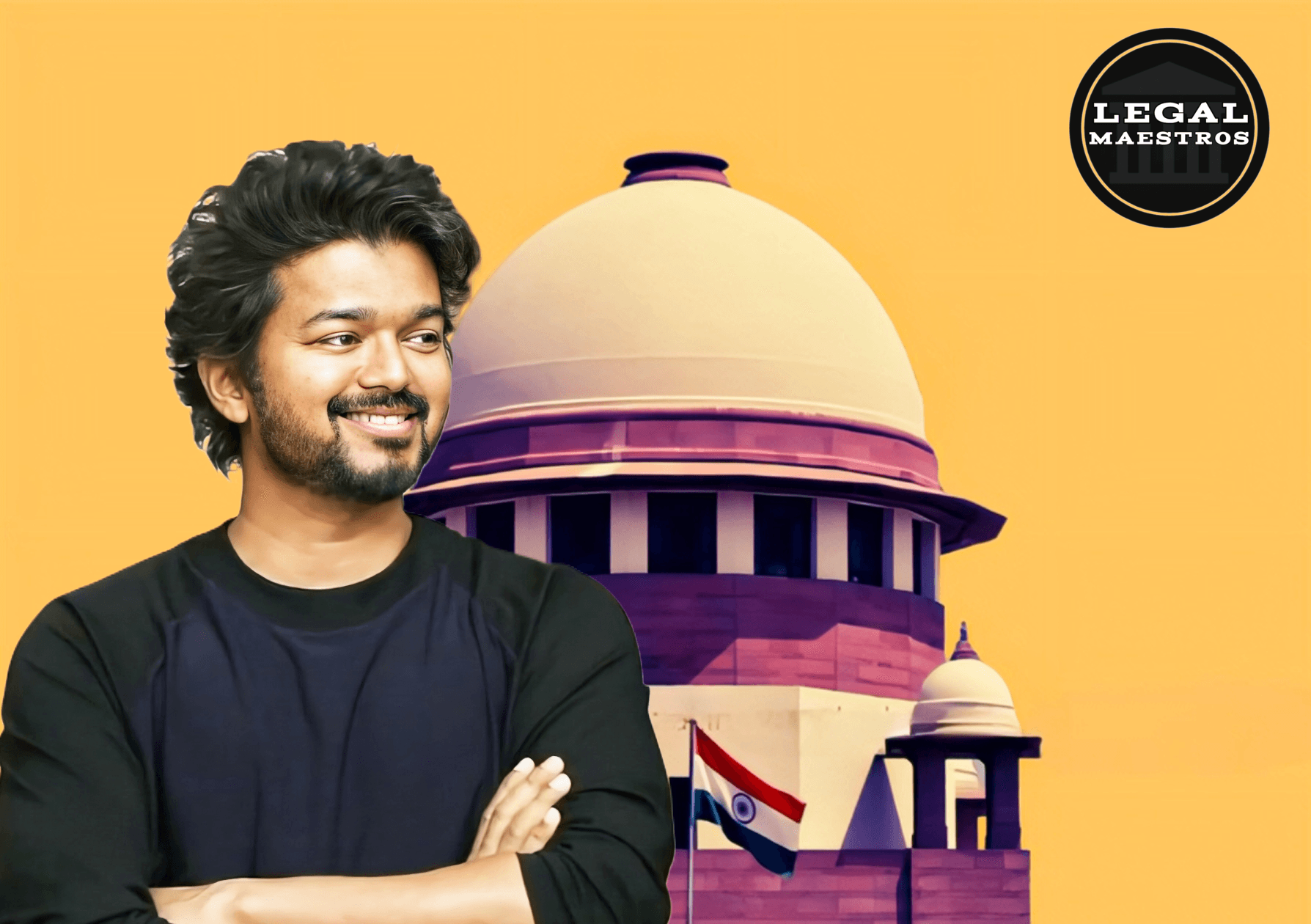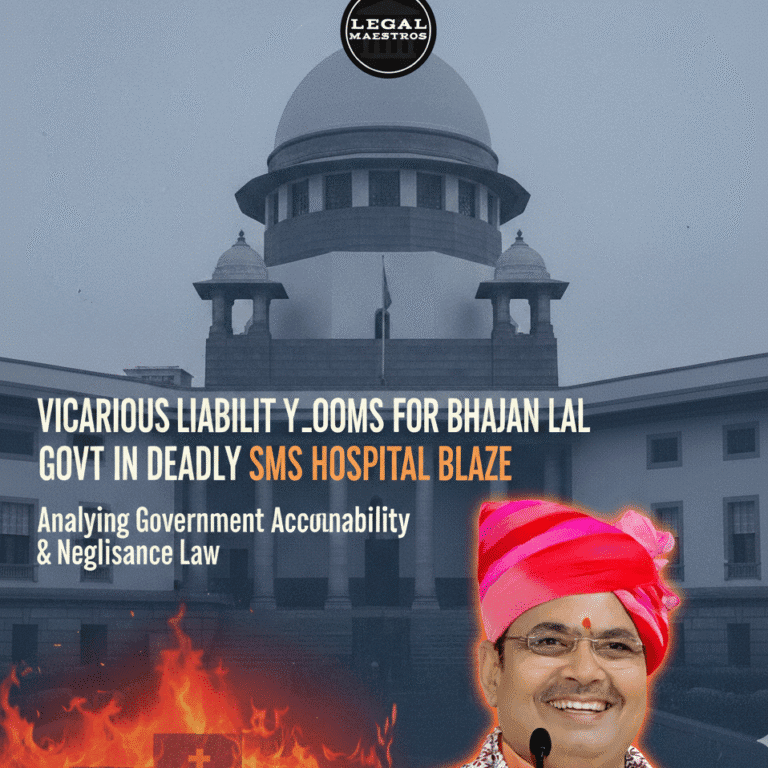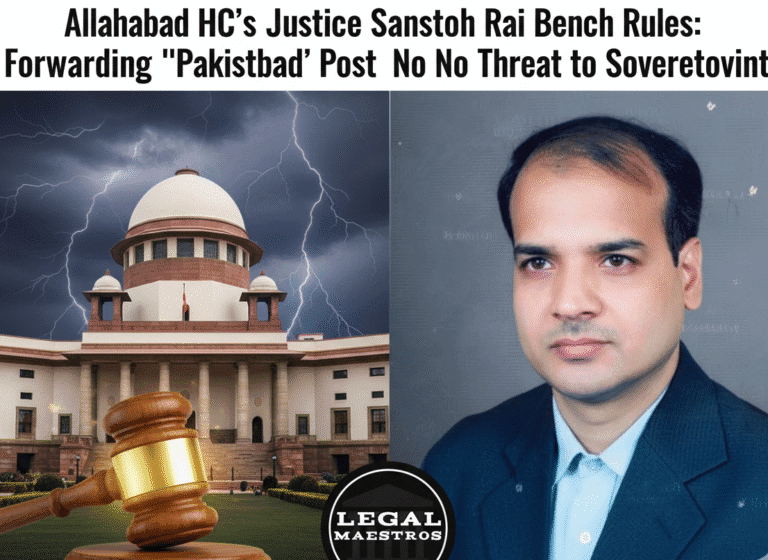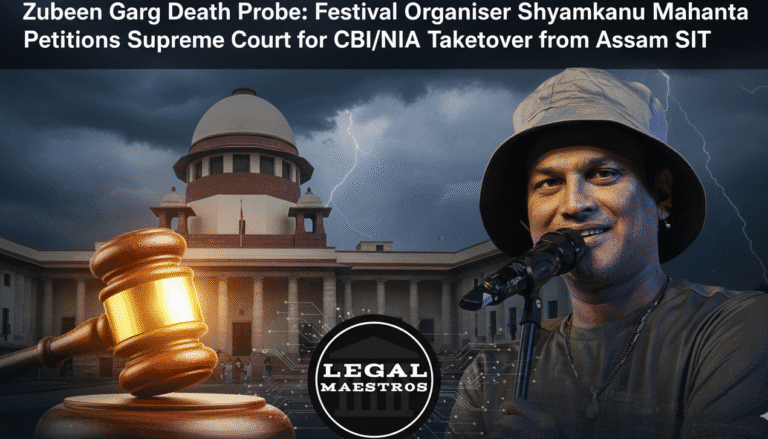
Marking a major development of recent interest, Madras High Court has given a major legal thrust into the intellectual property world, more so to political symbols. The court refused to issue an injunction restraining the actor Vijay political party, the Tamilaga Vetrri Kazhagam (TVK) on a matter concerning its party flag. Although this ruling was not the end of the case, it provides a clear insight into the manner in which courts consider the distinction between the trademark that is a commercial mark and the symbol that is political.
The legal arguments and the rationale of the court is simplified and lucidly presented in this article, which gives details on why the TVK was relieved and what this translates into the world of intellectual property law in India.
The difference of opinion: A Tale of Two Flags
This was filed by a registered trust named in Thondai Mandala Saandror Dharma Paribalana Sabai. The trust argued that the party flag of the TVK was “decetively similar†Authenticated to those of its registered tradmark brand and logo. The flag of the trust and the flag of the TVK share the same scheme of the flag with red-yellow-red in the three horizontal stripes.
For any queries or to publish an article or post or advertisement on our platform, do call at +91 6377460764 or email us at contact@legalmaestros.com.
This similarity was contended by the trust to be:
- Infringement of Trademark: TVK flag reproduced their registered trademark and this may cause confusion to the people.
- Copyright Edition: The flag of the trust was a work of art and TVK had reproduced the design of the flag without the authorization.
- Passing off: The TVK was improperly attempting to ride the reputation and good-will that the trust had worked to establish by using the likeness of the flag.
The primary purpose of the trust was to have an interim injunction by the court. An interim injunction is a prompt arrangement that would have prevented the TVK using its flag till the case could be finalised in the court.
The Arguments: In what Way the Parties fought It Out
Thondai Mandala Saandror Dharma Paribalana Sabai lawyers asserted that their mark has a legal registration, and the flag of TVK bears a vaushka that is too similar and that would create confusion. They noted that social services and the trust shared the political party thus it might be easier to confuse them.
For any queries or to publish an article or post or advertisement on our platform, do call at +91 6377460764 or email us at contact@legalmaestros.com.
But the TVK legal team, represented by Senior Advocate Vijay Narayan, also raised a number of potent counter-arguments:
- No Trade or Commerce: The most important argument of TVK lawyers was that neither trust nor the political party was engaged in trade or commerce. The Trademark Act majorly comprises the protection of marks in the case of goods and services within a commercial environment. A political party flag is not designed to sell goods, but rather, is a part of political expression, thereby, the lawyers claimed that it simply had nothing to do with the Trademark Act.
- Various Flags Different Symbols: Admittedly the same as regards the color scheme involving the use of red-yellow-red pattern, the lawyers of the TVK said, the entire design and the main symbols of the two flags were quite different. The flag of the trust had circle with a fish, salto of tiger and bow and arrow, and words were written as Valarga Thalamurai. The oval shaped flag of the TVK contrasted sharply with the flag having the two moving elephants. According to the legal representatives of the TVK, their flag was highly symbolic because it has a history and connection with Tamil culture. This implied that both flags completely differed in terms of look and feel and therefore confusion would be unlikely.
- No Evidence of Damage: In a passing off case, the plaintiff must show first that they have a reputation or “goodwill,” that there is a “misrepresentation” (people think there is a relationship between the two), and that they have suffered a loss, or damage, as a result. Lawyers of Who argued that the trust had failed to demonstrate any loss as well as the unjust enrichment of the TVK through deployment of its flag.
A balancing act in Court: decisions
Justice Senthilkumar Ramamoorthy of Madras High Court ruled to refuse interim injunction after hearing by both sides. The argumentation of the judge was preconditioned with a detailed pre-analysis of the legal principles.
- On Trademark Infringement: The court accepted that the word trade is not perfectly defined in the Trademark Act. The judge however did not find this at this primary phase that a political flag could be held as a trademark in the commonly understood aspects which are business and commercial in nature. The court was further able to notice that a color scheme was not tantamount to being the deemed assertion, or in short, could be deemed the essential feature of a mark that passes the gage of confusing the populace, at least not on the face of such a prominent difference in the center patterns.
- Copyright: On Copyright Infringement: The court agreed that the flag of the trust could be an artistic work. Nevertheless, that merely to demonstrate copyright infringement, it needs to be indicated that there was a “substantial copying.” The judge established that the flag with the similar color combination of the TVK was not a substantial copy of the flag of the trust since the central figures were the complete opposite (elephants vs. fish, tiger, bow, and arrow).
- On Passing Off: The court observed that the trust had not shown the three elements that were capital in passing off which were reputation, misrepresentation and damage. The judge has concluded that it could not be at this stage to say that the trust had created sufficient goodwill or that the flag of the TVK would be confused with that of a TVK.
It should be borne in mind that these were only tentative observations and were made such with reference to the interim injunction. The main case will be argued fully later but this decision provides a compelling clue to the way the court is thinking at the moment.
For any queries or to publish an article or post or advertisement on our platform, do call at +91 6377460764 or email us at contact@legalmaestros.com.
The Wider Legal Effect
This case sheds light into an important legal aspect of separation of commercial and political practices. Intellectual property rights such as Trademark Act and the Copyright Act are great tools used in the protection of businesses, artists and inventors. Nevertheless, they do not always best fit political symbols that serve ideological purposes and self-definition in the public setting rather than the sale of goods.
This case implies that a political party flag can be not only a brand logo but a political speech and symbol presented to people. This distinction is upheld by the court in the decision to deny the injunction, and this ensures that a legal barrier is not thrown amidst a political parties right to communicate to the people.
Recapitulate, the decision of the Madras High Court is in favor of the TVK, yet, most importantly it lays bare a major point in Indian law which is: Intellectual property rights protection must not override the greater good the necessity of the general good and the right to political speech. This case can become a precedent which will be followed with a great interest among both political parties and trusts, because it may define the way similar disputes will be solved in future.
For any queries or to publish an article or post or advertisement on our platform, do call at +91 6377460764 or email us at contact@legalmaestros.com.




